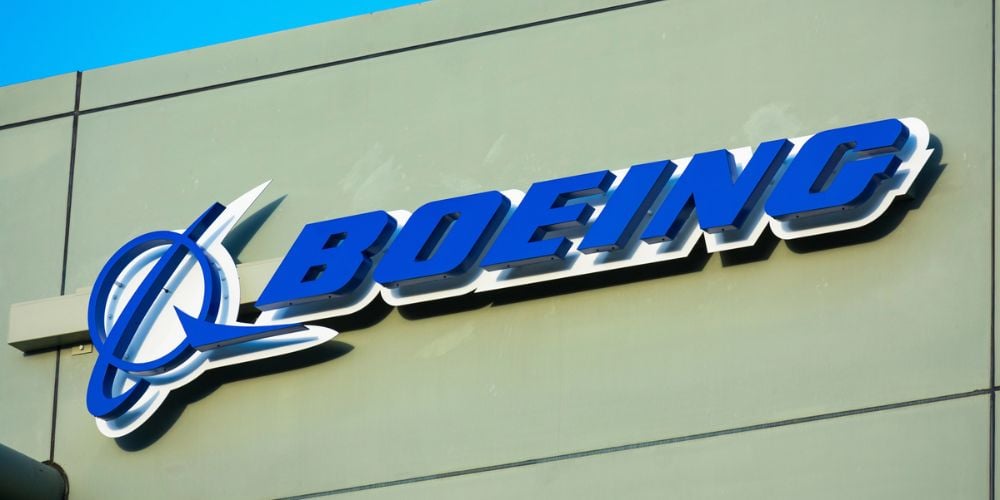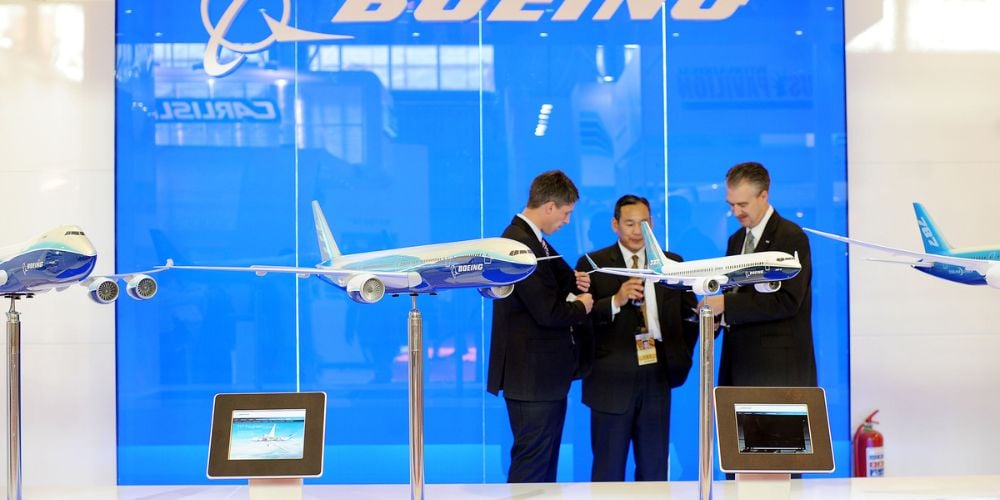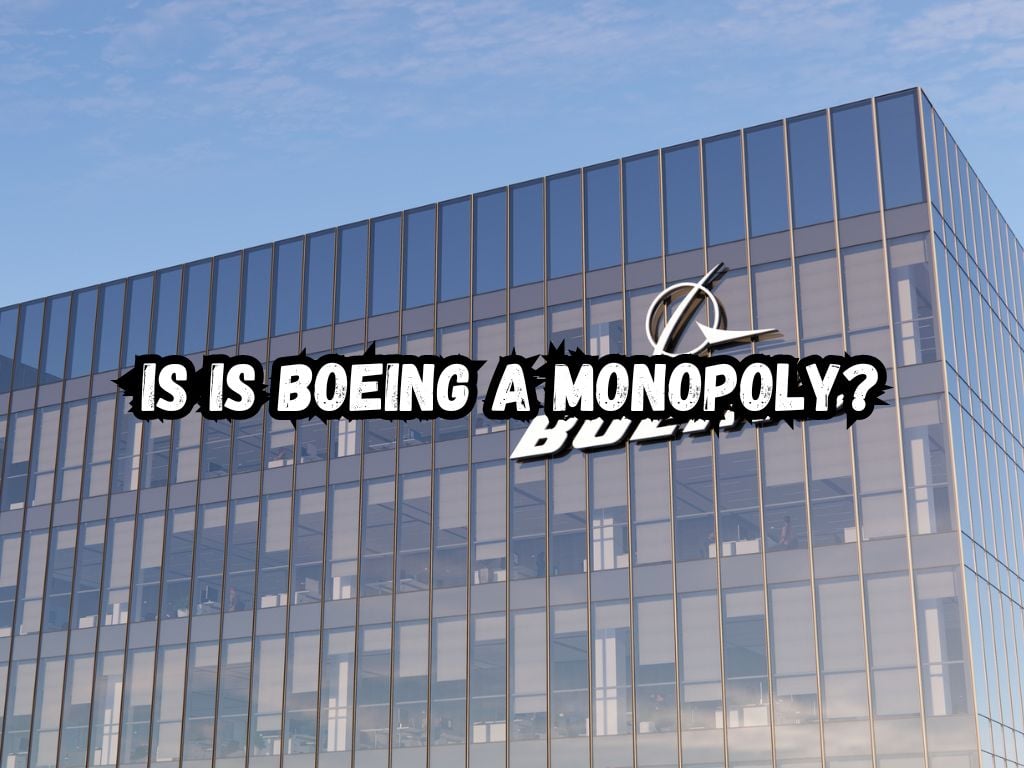Boeing stands as a colossus in the aerospace industry, its name synonymous with aviation itself. But with such stature comes scrutiny, particularly around the question: Is Boeing a monopoly?
To delve into this question, we must first understand what defines a monopoly and then examine Boeing’s position within its market.
Understanding Monopolies
At its core, a monopoly exists when a single entity dominates an entire market, facing little to no competition. This dominance allows the entity to set prices and control the market as it wishes. Key features of a monopoly include sole production, significant barriers to market entry, and price control.
It’s important to distinguish a monopoly from other market forms, like oligopolies, where a few companies control the market, or perfect competition scenarios, which feature many competitors.

Boeing’s Position in the Aerospace Industry
Boeing’s journey to becoming an aerospace giant speaks volumes about its market power. Today, its market share reflects a dominant position, but not without competition, notably from Airbus.
The barriers to entering the aerospace market are monumental, including enormous capital requirements and stringent regulatory approvals, which serve to limit new entrants.
Is Boeing a Monopoly?
Several factors cement Boeing’s power within the aerospace sector. Government contracts, especially from the United States Department of Defense, provide Boeing with a substantial revenue stream. The economies of scale achieved by Boeing allow it to operate more efficiently than smaller competitors.
Additionally, Boeing holds numerous patents and proprietary technologies, which set high barriers for potential rivals.
Counterpoints: Why Boeing May Not Be a Monopoly
Despite its towering presence, Boeing operates in a competitive environment. The aerospace industry is global, with each region having its champions, like Airbus in Europe.
Emerging competitors such as China’s COMAC and Canada’s Bombardier also challenge Boeing’s market share.
International anti-monopoly regulations and the presence of these competitors argue against Boeing being a true monopoly.
The Impact of Boeing’s Market Position
Boeing’s market position significantly impacts various stakeholders. Airlines, as consumers of Boeing products, face limited choices, potentially affecting pricing and innovation.
However, Boeing’s scale can also drive efficiency and technological advancements in the industry.
The supply chain, from small suppliers to large subcontractors, also hinges on Boeing’s demands and production cycles.
Legal and Economic Scrutiny
Boeing’s business practices and market position have not gone unexamined. Various legal cases and antitrust investigations, both in the United States and abroad, put Boeing under the microscope.
These inquiries aim to ensure fair competition and prevent anti-competitive behavior that could harm the industry or consumers.
Public Perception and Ethical Considerations
The concept of a monopoly goes beyond legal definitions, touching on public and ethical considerations. There’s a delicate balance between appreciating Boeing’s contributions to aerospace and scrutinizing its power.
The public’s perception is shaped by Boeing’s corporate actions, its responsiveness to competition, and how its dominance affects market choice and innovation.

Frequently Asked Questions
Boeing and Airbus are often neck and neck, with market share varying based on metrics such as order backlog, deliveries, and revenue. Both companies dominate the commercial aircraft market, though their positions may fluctuate over time.
What legal actions have been taken against Boeing for anti-competitive behavior?
Boeing has faced several legal challenges and antitrust investigations, both in the United States and internationally. These typically revolve around accusations of unfair competition practices or concerns over mergers and acquisitions that could limit competition.
Can a monopoly exist in a global market with multiple major players?
A true monopoly is less likely in a global context where multiple significant players can compete across regions. However, dominant firms can still exercise considerable market power on a global scale, even if not a monopoly by strict definition.
How do government subsidies and contracts affect the conversation around Boeing being a monopoly?
Government contracts and subsidies can bolster Boeing’s position, providing financial stability and a competitive edge. Critics argue that such support could distort the market, potentially leading to unfair advantages over competitors.
What impact would a determination of Boeing as a monopoly have on the aerospace industry?
If Boeing were determined to be a monopoly, it could face increased regulatory scrutiny, potential legal action, and demands for changes to its business practices. This could have widespread implications for competition, innovation, and consumer choice in the aerospace industry.
How do consumer interests fare in a market dominated by a single large entity like Boeing?
In a market dominated by a single entity, consumers — in this case, airlines — may face limited choices and higher prices. However, the counter-argument is that large firms can offer efficiencies and innovations that benefit consumers in the long run.
Conclusion
The question of whether Boeing is a monopoly does not have a simple yes or no answer. This exploration reveals a complex tapestry of market power, competitive forces, and regulatory oversight.
While Boeing exhibits characteristics of a dominant player, the presence of viable competitors and regulatory frameworks ensure the market remains dynamic.
Understanding Boeing’s position within the aerospace industry requires recognizing the nuances that define what a monopoly truly is.


 Tags:
Tags:










